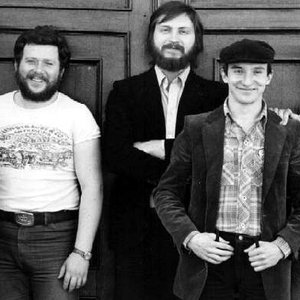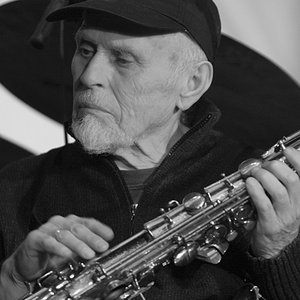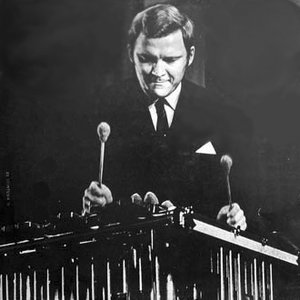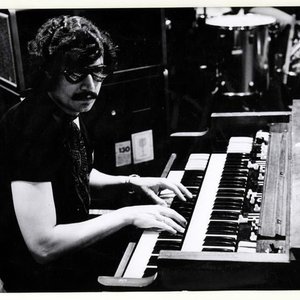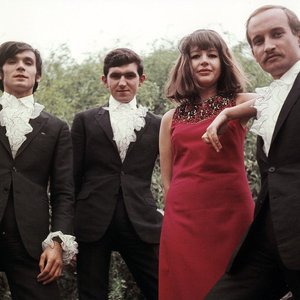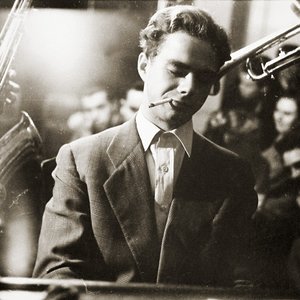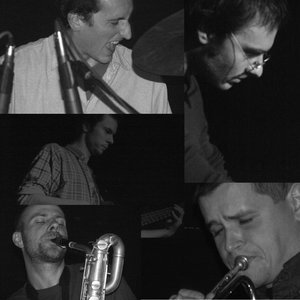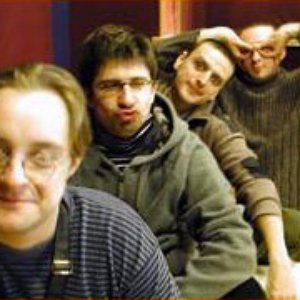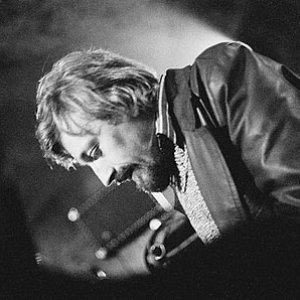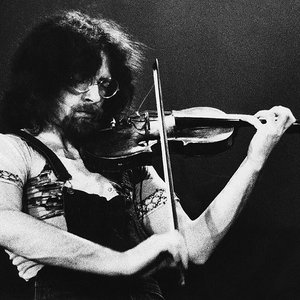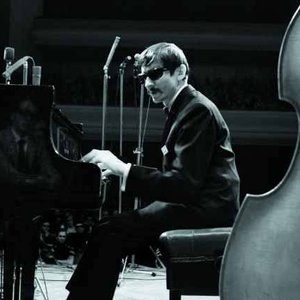Biography
-
Years Active
1970 – present (54 years)
The end of the 60s was an important period in jazz, as well as rock music, in Poland and the rest of the world, with the development of many styles and trends in popular music. The death of Polish musician KRZYSZTOF KOMEDA marked the end of a particular stage in Polish jazz. In 1970 the jazz rock fusion band, LABORATORIUM was formed in Kraków, although it is necessary to search further back in time for its roots.
JANUSZ GRZYWACZ, LABORATORIUM ‘s leader, made his first steps in the musical world in Kraków. During his time at high school he regularly lead and performed in bands: ŚMIACZE, LAMPARTY, TYTANI. MAREK STRYSZOWSKI, GRZYWACZ’s neighbour and school companion, also played in these bands. At the time GRZYWACZ also had connections with Kraków’s cabaret scene and the emerging STU Theatre.
Later during his college years (Polish studies), JANUSZ GRZYWACZ formed LABORATORIUM. Eventually a five-person line-up came about: JANUSZ GRZYWACZ (piano), MIECZYSŁAW GÓRKA (drums), WACŁAW ŁOZIŃSKI (flute), EDMUND MĄCIWODA (bass, soon to be replaced by MACIEJ GÓRSKI) and MAREK STRYSZOWSKI, (vocals, bassoon which was later replaced by sax). Their music soon developed in jazz rock fusion, and so were pioneers in this music in Poland. LABORATORIUM’s live debut was at the Gitariada ‘71 festival. In their first years, LABORATORIUM’s music was acoustic, cleverly avoiding any limiting definitions. At the beginning of the 70’s there was very limited access to Western recordings but this did not prove an obstacle for the band, because of the musicians searching and experimenting in the field. On the contrary and because of their relative isolation, LABORATORIUM developed an unique sound which was often noted in various critical reviews.
The LABORATORIUM’s album debut was released in January 1973, consisting of two tracks recorded in April 1972 in a studio belonging to the PR III of the Polish Radio. The recording session was in fact, an award for taking second place on the Jazz Nad Odrą ‘72 festival. The tracks were noted for their unusual approach both towards harmony and tension-building. The first song ‘Chorał’ included a vocal fragment by MAREK STRYSZOWSKI. Later his singing was to become an important and significant element of LABORATORIUM’s music, often utilising electronic voice-modulation effects.
In 1973 LABORATORIUM were awarded first prize of Jazz Nad Odrą festival, including an award for the best composition (JANUSZ GRZYWACZ’s “Prognoza na jutro”). The prize offered them the chance to move from amateur to professional status. In 1975 CZESŁAW NIEMEN offered to cooperate with LABORATORIUM, having recently left his band AEROLIT. NIEMEN performed with LABORATORIUM at a number of musical events, where to showcased music from “Katharsis”, and new songs which became the basis for the double-album “Idee Fixe”, released a few years later. This partnership was brief with NIEMEN soon forming a new band, leaving LABORATORIUM to follow their own path. However, the later to be international jazz trumpeter, TOMASZ STAŃKO also briefly passed through their ranks, performing together at Zaduszki Jazzowe ‘75. In the meanwhile LABORATORIUM, had undergone both personnel and musical changes; (JANUSZ GRZYWACZ replaced his acoustic piano for a Fender Rhodes, a novelty in Poland at that time), WACŁAW ŁOZIŃSKI and MACIEJ GÓRSKI were replaced by KRYSZTOF ŚCIERAŃSKI (known from playing with MAREK GRECHUTA) and his brother PAWEŁ ŚCIERAŃSKI, LABORATORIUM’s first guitarist. The band’s first official album “Modern Pentathlon” was recorded with this line-up.
“Modern Pentathlon” consists of a long, five-part title track “Pięciobój nowoczesny” and four shorter songs, three of which were distinctly funky. Electronically modulated vocalizations by MAREK STRYSZOWSKI are heard on the title track (whose style resembled that of URSZULA DUDZIAK), as well as there being a rich usage of the monophonic Roland synthesizer (played by JANUSZ GRZYWACZ) and accelerated, fragments based on twitchy, pulsating drums, recalling MAHAVISHNU ORCHESTRA. Importantly, LABORATORIUM clearly retained their artistic identity with all these added various references, demonstrating musical sensitivity and the musicians’ skills. “Modern Pentathlon” was released on the Polish Jazz Series (No. 49) in an unbelievable turn round time for the Polish record industry at the time. When there were normal expectations of at least a year between recording and release, this was recorded at the beginning of Summer ’76 and launched during the next Jazz Jamboree festival during autumn that year. Another innovation for the Polish record industry was with the album being premiered at the Polish Recordings Hall in Warsaw, with a record-signing. Some years later it was announced that “Modern Pentathlon” had sold well over 115,000 copies! With the success of the album LABORATORIUM perform in Poland and Germany, as well as the exotic Jazz Yatra Festival in 1978 in India, along with CZESLAW NIEMEN’s and ZBIGNIEW NAMYSŁOWSKI’s BANDS.
Before attending the Jazz Yatra Festival, LABORATORIUM found time to record another two albums with an enlarged line-up, with PAWEŁ VALDE-NOWAK (congas). During the September 1978 shows in Warsaw’s “Akwarium” club was recorded for the Biały Kruk Czarnego Krążka series as “Aquarium Live No. 1”, with the aim of capturing the typical atmosphere of the band’s live concerts. They also intended to release “Nurek” (recorded at Krakow’s Rotunda) through the label, Polskie Nagrania, at the time of the Jazz Yatra festival. Unfortunately it did not work out and instead Helicon (the International Jazz Federation’s record label), eventually released “Nurek” with the English title “Diver”. In 1979, the Polskie Nagrania label released the group’s album “Quasimodo” (Polish Jazz Series, No. 58), while the material meant for Elacoli - “Nogero” (1980) - was released by View Records for the German market. “Quasimodo” contained a few, longer compositions intertwining with various and fascinating miniatures.
The end of the 70s brought further personal changes, original member MIECZYSŁAW GÓRKA was replaced by ANDRZEJ MROWIEC, (previously known from MAANAM), as LABORATORIUM‘s drummer KRYZSZTOF ŚCIERAŃSKI soon followed moving on to work with ZBIGNIEW NAMYSŁOWSKI (replaced by KRZYSZTOF OLESIŃSKI, also of MAANAM), as did his brother PAWEŁ (replaced by RYSZARD STYŁA).
Following a successful appearance at the Zurich Jazz Festival, the Swiss agency Face Music undertook the band’s management. AS a result, LABORATORIUM performed fewer shows in Poland, more often visiting the West. During February and March ‘82 the group recorded its performances in Krakow’s STU Theatre, releasing them on the album “The Blue Light Pilot” (lineup: GRZYWACZ, STRYSZOWSKI, STYŁA, OLESIŃSKI, MROWIEC). During this period the band’s music continued to slowly change along with their instrumentation: GRZYWACZ regularly used a variety of synthesizers, as well as a custom-made 16-step sequencer (the first in Poland). On “The Blue Light Pilot” Thelonious Monk’s “Straight No Chaser” appeared (LABORATORIUM had not used any other composer’s music previously), arranged in an unique way using that sequencer. The album’s title track is an extremely mechanical piece, full of energy, interwoven with various outside musical references. The next album “No. 8” (1984) showed the results of the band’s restless search for more original ideas, including their instrumentation. Worthy of mention are the use of a Vocoder, the enrichment of the rhythmic pattern by adding JAN PILCH’s various percussion instruments and a guest appearance by violinist JAN BŁĘDOWSKI, who was to later toured as part of the band. “Anatomy Lesson”, LABORATORIUM’s last studio album with original material was prepared two years later, representing another logical progression in their career. For instance, sampled sounds were employed. The album still can intrigue with its variety of its sound, while retaining the typical compactness, characteristic to the band’s overall creation.
The group also functioned as the trio of GRZYWACZ, STRYSZOWSKI and PILCH (now a full member), performing at festivals such as Electric Music Island, Wrocław (1984). Meanwhile, JAN PILCH had become a permanent member of the band. In the last years of activity (including a Swiss tour), LABORATORIUM was supported by JAROSŁAW ŚMIETANA. While there have been occasional reunions, with several stage appearance in the 90’s including the celebration of their 25th anniversary (documented by TV documentary “25 Years of Laborka”), when all the band’s guitarists appeared together on stage, it may be considered that 1990 was the end of LABORATORIUM’s active career.
JANUSZ GRZYWACZ is an active, illustrative musician, he writes for the theatre (with more than 100 premieres) and for the film, he has also released two solo albums “Muzyka osobista” and “Młynek Kawowy”. MAREK STRYSZOWSKI performs with his band LITTLE EGOIST, he’s also the boss of a PSJ branch in Krakow. Alas it is impossible to write about all of LABORATORIUM’s former musicians, some of whom are still active on the scene, others finished in music. LABORATORIUM gained a solid and unquestionable status in Polish rock and jazz music. JANUSZ GRZYWACZ sums it up: “I think we had our fantastic.- no, not five - eleven minutes, which I sincerely wish to all musicians. We played more than a thousand concerts, were invited by major festivals and recorded 9 albums. I know that such things are impossible to achieve in the jazz market nowadays. I also know that LABORATORIUM never really fell apart, to be honest. It’s because that our music is still inside us. In each of us there’s still the same way of thinking and playing, the same sensitivity and perspective towards music, which characterized Laborka. And it always will.”
- Adapted by permission from author Michał Wilczyński (Metal Mind Productions), edited by Dick Heath. Thanks go to Bartłomiej Ślązak (aka Tuzvihar) for his extensive research in compiling this information
Discography (label and catalogue number given when available):
1972 - BIAŁY KRUK CZARNEGO KRĄŻKA (a compilation prepared especially for the members of a "Record Club" of the Polish Jazz Association. Only side A of the LP was dedicated to Laboratorium, side B of that LP contained recordings of Julian "Cannonball" Adderley Quintet from Jazz Jamboree '72) (Poljazz Z-SX0546A)
1976 - MODERN PENTATHLON (Muza/Polskie Nagrania SX1418)
1977 - AQUARIUM LIVE (live) (Poljazz Z-SX0669)
1977 - DIVER (Helicon HR1003)
1979 - QUASIMODO (Muza/Polskie Nagrania SX1784)
1980 - NOGERO (View Records, Cat No?)
1982 - THE BLUE LIGHT PILOT (live) (Helicon HR1007)
1984 - No. 8 (Pronit M0013)
1986 - ANATOMY LESSON (??)
2006 - Anthology 1971-1988. Nagrania wszystkie (no prawie wszystkie) - 10CD BOX (Metal Mind Records MMP10CDBOX001 5907785028173)
Artist descriptions on Last.fm are editable by everyone. Feel free to contribute!
All user-contributed text on this page is available under the Creative Commons Attribution-ShareAlike License; additional terms may apply.


